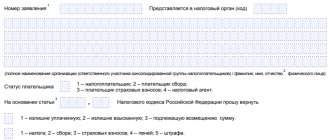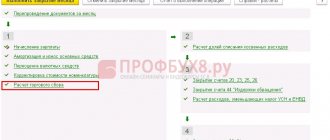Local taxes and fees of the Russian Federation
Editorial Board
Promdevelop editorial team
Local taxes and fees are payments by individuals and legal entities to the local budget. Proceeds are allocated to municipal needs, as opposed to federal funds.
- Legal entities
Local taxes and fees are introduced by the regional municipality, which complies with the legislation - the Tax Code of the Russian Federation. Based on Article 12 of the Tax Code of the Russian Federation, each municipality has the right to set its own percentages for calculation.
What applies to local taxes? Role in the budget
Local taxes include all fees listed in Article 15 of the Tax Code of the Russian Federation. In addition to their definition, it is important to examine their role in budgeting. The purpose of all types of local taxes is to provide the municipality with stable income. The collected funds are then used to ensure state security, support the main sectors of the economy, and implement social policy.
Local taxes and fees are established by the President of the Russian Federation by signing a new Government Resolution. This means that local taxes are established only through amendments to the Tax Code of the Russian Federation - the head of the municipality does not have the right to introduce new types of fees. Acts that establish local taxes are changes to articles of the Tax Code of the Russian Federation and legal acts signed by the head of the region in question.
There are several types of taxes: federal, regional and local taxes.
Types of taxes
If the former operate throughout Russia and are aimed at providing for the federal budget, then regional and local taxes are divided in municipal conditions.
Local taxes and fees include:
- land tax;
- real estate tax based on cadastral value;
- trade fee;
Land payments
The list of local taxes is headed by land taxes, which are divided into groups - rates for individuals and individual entrepreneurs, combined into one category, and percentages for legal entities. Land tax refers to local taxes and is paid by all municipal facilities that own land plots.
4.2. Federal budget revenues
Federal budget revenues include the federal budget's own tax revenues, with the exception of tax revenues transferred in the form of regulatory revenues to the budgets of other levels of the budget system of the Russian Federation, and non-tax revenues. In the process of executing the federal budget, its revenues may receive funds from mutual settlements from the budgets of constituent entities of the Russian Federation and other gratuitous transfers.
To tax revenues of the federal budget
relate:
· federal taxes and fees, the list and rates of which are determined by the tax legislation of the Russian Federation. The proportions of their distribution in the order of budget regulation between budgets of different levels of the budget system of the Russian Federation are approved by the Federal Law on the Federal Budget for the next financial year for a period of at least three years, subject to a possible increase in the standards of contributions to lower-level budgets for the next financial year. The validity period of long-term standards can be reduced only if changes are made to the tax legislation of the Russian Federation;
· customs duties, customs fees and other customs payments;
· National tax.
Non-tax revenues of the federal budget
include:
· income from the use of state-owned property, income from paid services provided by budgetary institutions under the jurisdiction of government bodies of the Russian Federation in full;
· part of the profit of unitary enterprises established in the Russian Federation and remaining after paying taxes and other obligatory payments, in the amounts established by the Government of the Russian Federation;
· profit of the Bank of Russia remaining after paying taxes and other obligatory payments - according to the standards established by federal laws (in 2005 - 80%);
· income from foreign economic activities.
The federal budget's own revenues can be transferred to the budgets of the constituent entities of the Russian Federation and local budgets according to the standards established by the Federal Law on the Federal Budget for the next financial year for a period of at least three years and the Federal Law “On the Financial Foundations of Local Self-Government in the Russian Federation.” The validity period of the standards can be reduced only if changes are made to the tax legislation of the Russian Federation.
The establishment of new types of taxes, their abolition or change is possible only by introducing appropriate changes to the tax legislation of the Russian Federation.
Federal legislative bodies can establish new types of non-tax revenues, cancel or change existing ones after the federal executive bodies present their conclusions and only by amending the Budget Code of the Russian Federation .
Federal laws on amendments and additions to the tax legislation of the Russian Federation, which come into force from the beginning of the next financial year, must be adopted before the approval of the federal law on the federal budget for the next financial year.
Amendments and additions to the legislation of the Russian Federation on federal taxes and fees, which require their entry into force during the current financial year, are permitted only if appropriate changes and additions are made to the federal law on the federal budget for the current financial year.
Federal executive authorities provide tax credits, deferments and installments for the payment of taxes and other obligatory payments to the federal budget in accordance with the tax legislation of the Russian Federation within the limits of providing tax credits, deferments and installments for the payment of taxes and other obligatory payments, determined by the Federal Law on the Federal budget for the next financial year.
The income of federal target budget funds is separately taken into account in federal budget revenues at the rates established by the tax legislation of the Russian Federation, and is distributed between federal target budget funds and territorial target budget funds according to the standards determined by the Federal Law on the Federal Budget for the next financial year.
The revenue part of the federal budget of the Russian Federation consists mainly of taxes from enterprises and organizations of various forms of ownership, value added tax, excise taxes, and customs duties. The federal budget receives fees, duties and other payments for services provided from the population.
The federal budget of the Russian Federation for 2002 was adopted with a surplus of 178.4 billion rubles, while the revenue portion amounted to 2,125,718.2 million rubles. rubles based on the projected volume of gross domestic product in the amount of 10,950 billion rubles and an inflation rate of 12.0 percent (December 2002 to December 2001).
The federal budget revenues for 2002 included the receipts of the unified social tax (contribution), directed to the budget of the Pension Fund of the Russian Federation for the payment of the basic part of the labor pension.
The excess of income over expenses in 2002 in the amount of 68,566.6 million rubles was used to pay off the public debt of the Russian Federation and in the amount of 109,765.3 million rubles for the formation of a financial reserve.
The Russian federal budget revenues for 2003 were approved in the amount of 2,417,791.8 million rubles based on the projected volume of gross domestic product in the amount of 13,050.0 billion rubles and the inflation rate (consumer prices) of 10-12 percent (December 2003 year to December 2002). The federal budget revenues for 2003 include the receipts of the unified social tax, directed to the budget of the Pension Fund of the Russian Federation for the payment of the basic part of the labor pension.
The excess of income over expenses in the amount of 72,150.4 million rubles is allocated in 2003 in the amount of 51,415.2 million rubles to repay the public debt of the Russian Federation and in the amount of 20,735.2 million rubles to replenish the financial reserve.
On November 28, 2003, the State Duma approved the federal budget for 2004 for revenues in the amount of 2,742,850.4 million rubles based on the projected volume of gross domestic product in the amount of 15,300 billion rubles and an inflation rate (consumer prices) of 10 percent (December 2004 year to December 2003). It has been established that the federal budget revenues for 2004 include the receipts of the unified social tax, directed to the budget of the Pension Fund of the Russian Federation for the payment of the basic part of the labor pension.
The excess of income over expenses in the amount of 83,403.4 million rubles is allocated in 2004 to the formation of the Stabilization Fund of the Russian Federation in the manner established by the budget legislation of the Russian Federation.
The federal budget for 2005 was approved for revenues in the amount of 3,326,041.1 million rubles based on the projected volume of gross domestic product in the amount of 18,720 billion rubles and the inflation rate (consumer prices) of 7.5-8.5 percent (December 2005 year to December 2004) The excess of revenues over expenses of the federal budget in 2005 amounted to 278,111.8 million rubles.
Federal budget revenues for 2005 are presented in more detail in Appendix 1 (see additional materials).
Individual and individual entrepreneur
Payment of land tax is regulated by Articles 388 and 389 of the Tax Code of the Russian Federation. Here it is important to highlight the fact which taxes go to the local budget if they are paid for the ownership of a land plot. The presented legislative acts determine payers. Fees must be paid to the budget by all individuals and individual entrepreneurs who own land plots on the basis of perpetual or lifelong inheritable ownership.
The objects are all land plots that are located within the municipality with approved fees of the presented nature. Areas that are recognized as valuable cultural and archaeological heritage, as well as museum reserves, are not included in the list of local land tax objects. Fees are not levied on areas that are part of the common property of an apartment building.
Fees are set at 0.3% of the cadastral value for agricultural plots and objects owned by individuals. Individual entrepreneurs using land for their activities pay a fee of 1.5% of the cadastral value. The fee is paid for the entire year of ownership of the property until December 1 of the year following the billing period.
Legal entities
In accordance with Article 389 of the Tax Code of the Russian Federation, legal entities must pay funds to the budget of the municipality on whose territory the land owned by right of ownership is located. Objects are all lands that are listed on the balance sheet of the municipality.
In the Tax Code, local taxes in the form of land fees for legal entities are not paid from the following objects:
- which were withdrawn from circulation by law;
- from cultural heritage;
- from the forest fund;
- with restrictions on circulation according to the law - municipal or state;
- from an apartment building.
The payment deadline is the same as for individuals. A rate of 0.3% applies to agricultural objects and plots used by entrepreneurs for personal farming. The rate of 1.5% applies to all other land plots.
For the property of individuals
In determining whether a property tax is local or regional, only the local interpretation is distinguished. Contributions to the budget are made by all owners who own the property that is the object.
In the questions presented, the following definitions and factors can be distinguished:
- all owners are payers - if a property has several shared owners, everyone must pay the fee;
- the object is any real estate specified in Article 401 of the Tax Code of the Russian Federation - residential or non-residential premises, a garage or parking space, a single complex, sheds and other outbuildings;
- payment occurs before December 1 of the year following the billing period - calculated on the basis of the available cadastral value as of January 1 of the following year following the billing period;
- rates are presented as 0.1%, 2% and 0.5% - for residential properties and outbuildings, for objects from the list of Article 378 of the Tax Code of the Russian Federation and for other property, respectively.
Local taxes and fees in 2021, depending on the availability of property, can be paid for three previous periods - for 2021, 2021, 2018.
For real estate at cadastral value
Types of local taxes and fees include additional payments for real estate according to the cadastral value of the property available at the time of accrual of the amount (as of January 1 of the following year). The following types of fees are paid by organizations that own the following types of objects:
- administrative or commercial centers;
- premises with offices;
- owned by foreign citizens;
- residential buildings and premises are on the company's balance sheet.
Organizations pay their due payments until December 1 of the following year for the billing period. Rates depend on the cadastral value of the property and are presented in full in the table.
Trade fee
In matters of federal, regional and local taxes, the latter take a controversial position. So, here they allocate a trade fee, which includes investments in the budget for advertising, for carrying out economic and business activities, local licensing fees, etc. Trade tax is a local tax, but it is regulated by Articles 411 and 412 of the Tax Code of the Russian Federation. Payers are individual entrepreneurs or organizations engaged in trading activities.
The object of the collection is the use of space by entrepreneurs to carry out their activities. The calculation period is a quarter of the year, so contributions should be made before the 25th day of the month following the end of the quarter. The rate cannot exceed 550 rubles per 1 sq. m. m of usable area. The municipality has the right to set its own rates, which is confirmed by regulations signed by the head.
Transport tax
Transport tax in Moscow is levied on owners of cars, motorcycles, scooters, buses, trucks, other self-propelled vehicles, motor sleighs, snowmobiles, as well as watercraft and vehicles.
In this case, the tax rate depends on the engine power and is levied per horsepower. The tax is paid annually by organizations and individuals. When a taxpayer registers or deregisters a vehicle, road tax in Moscow is calculated taking into account a coefficient applied as the ratio of the number of full months during which the vehicle was registered to the taxpayer to 12 months of the calendar year. The month of registration and deregistration is counted as a full month.
Calculus mechanism
How local budget taxes are calculated were described above. The general characteristics of local taxes allow you to independently calculate the amount to pay on your existing property or commercial activity. The following examples of calculating local taxes can be given:
- The company owns an administrative and shopping center with an area of 110 square meters. m. and a cadastral value of 3 million 600 thousand rubles. The rate for this amount is 0.1%. It turns out that the company pays 3,600 rubles annually.
- An individual has an agricultural land plot. The cadastral value of the property is 570 thousand rubles. The rate in this case is 0.3%, as a result of which the owner pays 1,710 rubles annually.
- An individual owns a residential building in which he lives. The cadastral value of the object is 2 million 100 thousand rubles. The current interest rate in this case is 0.1%, so the owner pays 2,100 rubles annually.
- The organization is engaged in trade, renting a premises measuring 23 square meters. m. The rate is 457 rubles per 1 sq. m. m. This means that entrepreneurs pay a fee of 10,511 rubles every quarter.
In a similar way, you can calculate all the remaining types of fees that a Russian citizen must pay if he is a taxpayer.
Residential property tax
Objects of taxation include the following types of property: apartments, houses, dachas, rooms, garages, as well as other premises and buildings and shares in the ownership of the listed property.
The apartment tax in Moscow is equally distributed among the share owners, who are obliged to pay it in proportion to their share.
The current tax rates in Moscow for residential premises are applied based on their value: · 0.1 – for a cost below 300,000 rubles. · 0.3 – cost 300 – 500,000 rubles. · 0.6 – 500 – 1,000,000 rub. · 0.75 – more than 1,000,000 rub.
The tax is calculated as of January 1 of each year, based on the inventory value of the apartment.
Procedure for paying local taxes
The general description of local taxes and fees presented above partially explains how the procedure for paying fees is carried out. A complete list of rules and fundamentals is given in Article 58 of the Tax Code of the Russian Federation. This act, which establishes the local tax, lists the following basics:
- Local taxes come into effect when the payer submits information to the authorized body about the acquisition or receipt of ownership of an object, as well as about the start of commercial activity.
- Local taxes and fees are required to be paid at rates approved by the municipality.
- Local taxes and fees are set by the state and regulated by local regulations.
- The procedure for paying local taxes and fees is established by the Tax Code of the Russian Federation and additional regulations.
- The payer must pay the fee within a month from the date of receipt of the receipt from the authorized body, unless otherwise provided by law. For example, fees on your own property can be paid before December 1, and the receipt may arrive in the spring of the coming year.
Studying examples of local, regional and federal taxes, a distinctive tax is identified - trade, which requires the mandatory filing of a declaration at the end of the quarter. In other types of payments, this will not be necessary if the payer’s situation with regard to property rights has not changed.
Is it necessary to pay
The presented fees must be included in the budget. Otherwise, the payer faces penalties and then a fine for prolonged evasion of obligations. If employees of authorized bodies establish the fact of intentional evasion, a citizen or organization may be brought to criminal liability under Article 199 of the Criminal Code of the Russian Federation.
The questions of who sets local taxes and what are the features of their calculation were presented in detail. The types of fees are currently presented in Article 15 of the Tax Code of the Russian Federation, which distinguishes land payments, trade fees and the property of individuals. As a result, some questions arise that lead to interesting facts:
- Land tax – local or regional? This issue worries all land owners. In accordance with Article 387 of the Tax Code of the Russian Federation, this fee is local, and therefore is regulated by the general code and regulations of the municipality.
- Is the water tax local? No, this is a federal tax, which is indicated in Article 333 of the Tax Code of the Russian Federation. You can answer in a similar way: is personal income tax a local tax? The concept of local or federal tax is often attributed to personal income tax. The above variety is highlighted in Chapter 23 of the Tax Code of the Russian Federation, which spells out its federal significance. But here is a local or regional transport tax, the answer can be unequivocal - regional, the details of which are spelled out in Articles 357, 368 and 361 of the Tax Code of the Russian Federation.
- Can local governments set taxes? No, they are only allowed to adjust rates. The deadlines for paying local taxes are set at the state level, so the municipality does not have the right to exercise independence to the detriment of its population.








